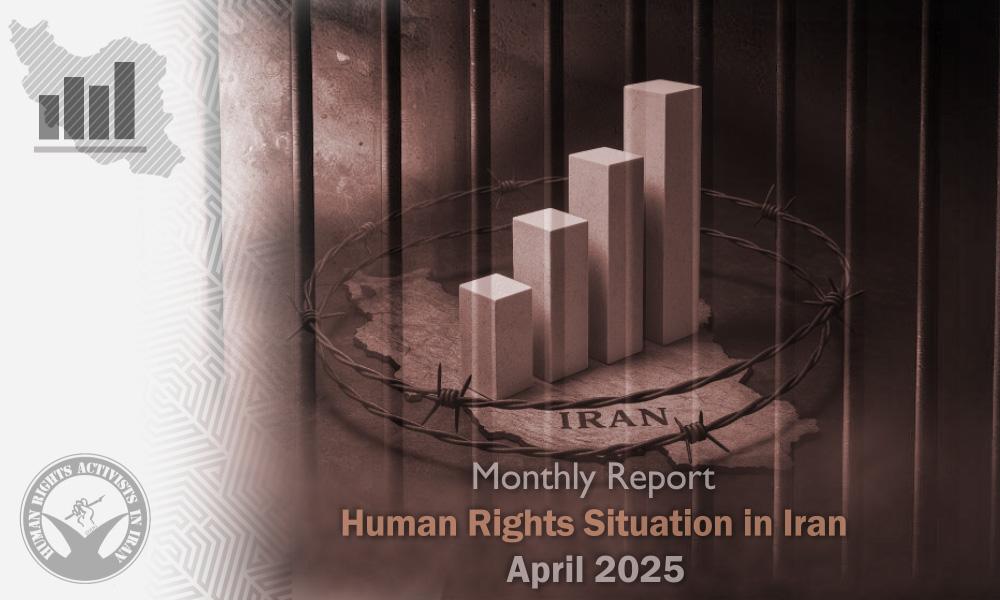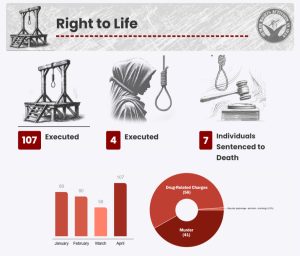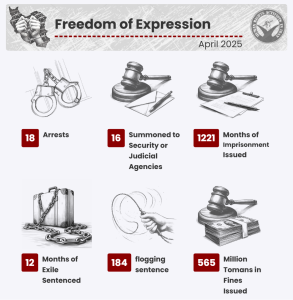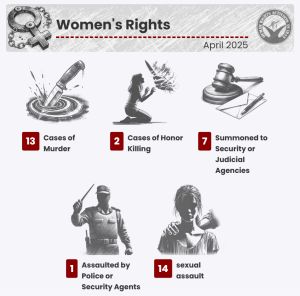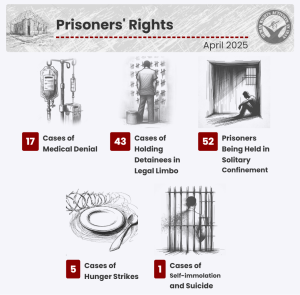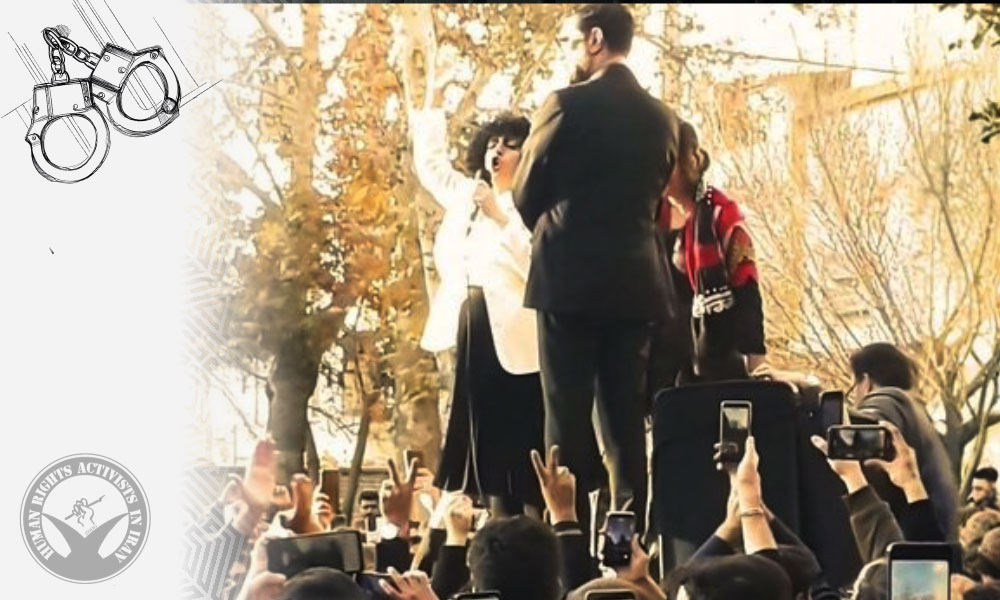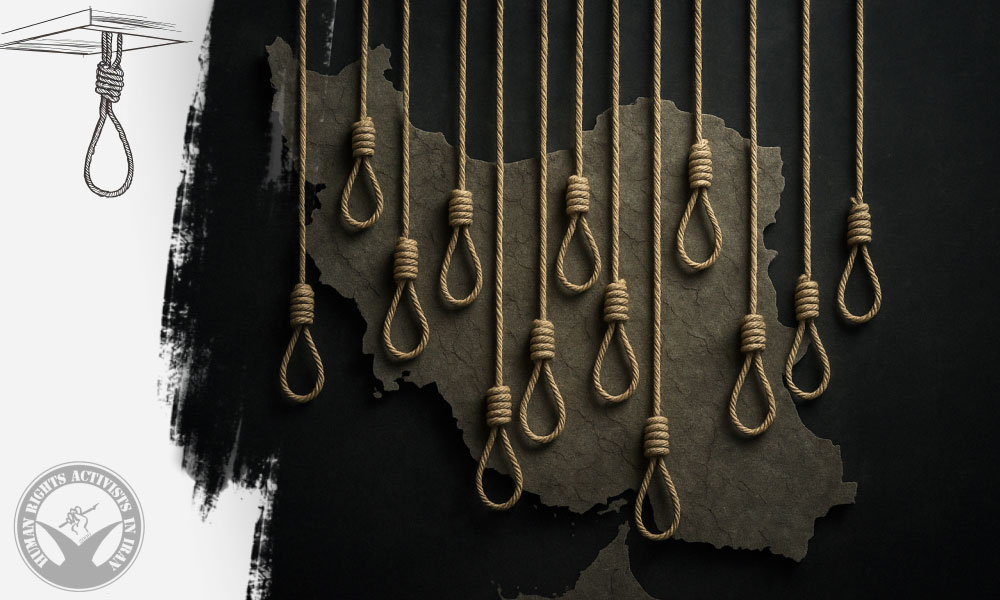HRANA News Agency -In April 2025, HRANA, via its Statistics Department, documented a continued deterioration in Iran’s human rights conditions. April marked the highest number of executions since the beginning of the year, with 107 individuals executed. It also saw the highest number of prison sentences issued this year against citizens for expressing their beliefs and opinions. Numerous other instances of human rights violations were also reported, as detailed below. The findings presented here aim to inform the public and international community of the systemic challenges within Iran’s legal, political, and social institutions.
Executions
In the past month, Iran’s prisons witnessed the execution of 107 individuals—a 180% increase compared to the previous month. Of those executed, 100 were men, four were women, and the gender of three remains unknown. Among those executed were three Afghan nationals.
Fifty-six individuals had been sentenced to death on drug-related charges—an accusation that has led to the execution of 148 people in Iran since the beginning of the year. Forty-eight others were executed on murder charges. Most of these executions are not publicly announced by the judiciary or domestic media, underscoring the lack of transparency and the judiciary’s failure to provide public information about legal proceedings.
Among those executed was Mohsen Langar-Neshin, who was hanged on April 30 in Ghezel Hesar Prison in Karaj on charges of espionage and collaboration with hostile states.
This month, Iran’s courts sentenced seven individuals to death. Five were convicted of murder, and one was sentenced for rape. The charges against the seventh person remain unknown.
Among those sentenced to death this month are the singer Amirhossein Maghsoudloo (known as Tataloo) and political defendant Hamid Hosseinnejad Heydaranlou.
Freedom of Thought and Expression
In April, security forces arrested 18 individuals for expressing their beliefs and opinions. Two others were summoned by security agencies for the same reasons, 14 were summoned to judicial agencies, and the home of one citizen was searched by security agents. Notably, six of the 18 arrests were carried out without a warrant.
During this period, Iranian courts, in violation of citizens’ freedom of expression, sentenced 40 individuals to a total of 1,221 months (approximately 101 years) in prison on charges related to freedom of expression. Of this total, 143 months were suspended sentences. Additionally, the courts issued sentences including 12 months of exile, 184 lashes, and fines totaling 5.65 billion rials.
Women’s Rights
In the past month, 13 women were killed in Iran, including two victims of so-called “honor” killings—underscoring the Iranian regime’s failure to provide legal protection for women. Fourteen cases of sexual assault were also reported.
Continuing the pattern of repression by Iran’s police and security forces, seven female singers in Behbahan were summoned and interrogated by security agencies. They were threatened and pressured to abandon their profession. HRANA also documented one case of physical assault by police.
Workers’ Rights
In April, 34 labor protests were held across Iran, and in six cases, workers went on strike to press for their demands. Reports also documented the non-payment of wages for 1,856 workers, the unjustified dismissal of 30 workers, and 100 cases of job suspension or employment uncertainty.
In the same month, 78 workers lost their lives in workplace accidents, and 1,285 others were injured. The number of workplace fatalities was five times higher than the previous month.
Although the International Labour Organization (ILO) does not rank Iran in terms of occupational safety due to insufficient data, an analysis based on statistics gathered by HRANA places Iran 97th out of 109 countries in terms of workplace accident fatalities—a notably low ranking. According to these figures, in the past year, roughly 9 out of every 100,000 workers in Iran died in workplace accidents.
In April, professional guilds and unions held 57 protest gatherings, and two strikes were also reported.
Additionally, on April 12, Asghar Amirzadegan, a teachers’ union activist, was arrested. In two separate verdicts issued against labor activists, a total of 27 months of prison sentences were handed down. Two years of this imprisonment were issued against Mohsen Ramazanpour on charges of “spreading false information” and “disturbing public opinion.”
Kolbars and Fuel Carriers
This month, unregulated gunfire by military forces resulted in the deaths of two fuel carriers. Additionally, two kolbars and one fuel carrier were injured by military forces. Additionally, two kolbars lost their lives and one was injured due to hypothermia or falling from heights.
In the border region of Baneh, landmines left over from the Iran-Iraq war claimed more lives. Mohammadreza Sedaghatpour, a government employee, and Ali Karimi, a conscripted soldier, were killed in a landmine explosion.
Children’s Rights
HRANA documented one case of non-fatal suicide (a 15-year-old girl in Ardabil), four cases of murder, and six incidents of sexual assault involving minors. Additionally, 56 children were injured as a result of official negligence, including unsafe school conditions and the absence of basic public safety infrastructure.
Ten minors were also subjected to physical violence and corporal punishment, including nine schoolboys who were beaten and abused by a teacher at a school in Shahr-e Rey.
Religious Minorities
This month, four members of religious minorities were sentenced to a total of 510 months in prison. Three of them—Christian converts—were collectively sentenced to 41 years of imprisonment along with other penalties. Additionally, they were fined 910 million tomans.
Three members of religious minorities were also arrested, two were summoned to court, and the home of one individual was searched by security forces.
Prisoners’ Conditions
In Iran, prisoners’ rights are systematically violated, and numerous instances of unfair legal proceedings and legal uncertainty have been observed. This month alone, violations included: the denial of medical care to 17 prisoners (including renowned civil rights activist Mohammad Nourizad), 43 cases of legal limbo, 52 transfers to solitary confinement, four cases of denied access to legal counsel, eight cases of denied visitation, and 18 instances of threats or pressure against inmates.
In reponse to the hard prison conditions and legal limbo, five hunger strikes and one suicide were reported this month. On April 26, in Mahidasht Prison, Hamed Geravand, a 34-year-old inmate, died by suicide after ingesting pills, methadone, and crystal meth. He had been imprisoned on drug-related charges.
Ethnic Rights
Targeting of ethnic minorities—particularly Kurds and Azerbaijani Turks—persisted through arrests, interrogations, and surveillance. HRANA documented 4 arrests without presenting arrest warrant, and one house search
This month, Alireza Farshi, an Azerbaijani-Turk activist, was sentenced to eight months in prison for “propaganda against the regime.”



